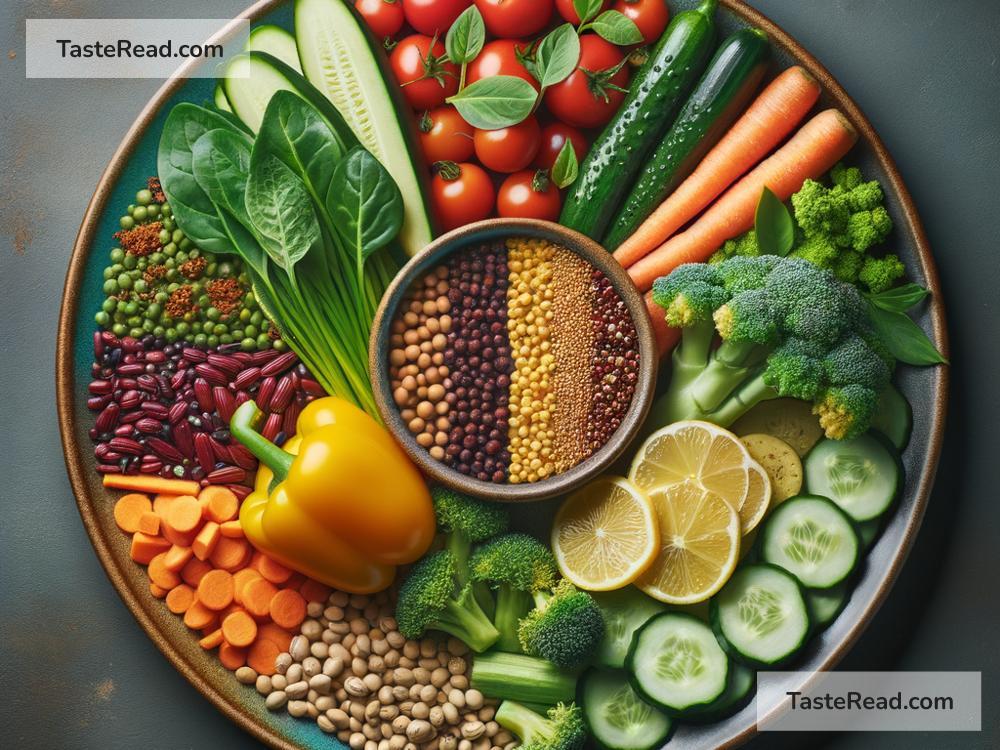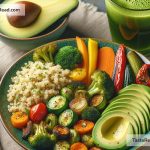The Power of Plants: How a Vegan Diet Can Tame Inflammation
In a world brimming with dietary advice and countless diets to choose from, the vegan diet shines not just as a path to healthier living but as a powerful ally against inflammation. We’ve all heard about inflammation, that pesky reaction our bodies undergo in response to injury or when under attack by harmful entities. While it’s a natural and essential part of healing, chronic inflammation can be a silent menace, inviting a myriad of health problems ranging from heart disease to arthritis. Enter the vegan diet, a plant-based powerhouse renowned not just for its ethical stance but also for its health benefits, chiefly its potential to reduce inflammation. Let’s delve into how embracing a vegan lifestyle can help soothe the flames of inflammation, packaging complex research into simple bites of information.
The Baseline: Understanding Inflammation
Imagine you’ve accidentally cut your finger. Soon, the area becomes red and swollen. That’s inflammation in action, your body’s way of saying, “All hands on deck!” as it fights off infections and heals the wound. However, when inflammation goes from a temporary visitor to a permanent resident, it’s like having a fire that never fully extinguishes. This chronic inflammation can slowly damage your body, contributing to diseases that can affect your quality of life.
The Green Solution: A Vegan Diet
Now, how does a vegan diet come into the picture? A vegan diet consists of plants, lots of them, and excludes all animal products. Plants are rich in fiber and antioxidants – think of antioxidants as the body’s firefighting team, helping to put out the flames of inflammation. A diet heavy in fruits, vegetables, whole grains, nuts, and seeds can significantly decrease the markers of inflammation in the body.
Fiber: The Unsung Hero
Fiber does more than keep your digestive system happy. Found only in plant foods, fiber helps reduce C-reactive protein (CRP), a significant marker of inflammation in the body. By incorporating more plant-based foods into your meals, you naturally increase your fiber intake, giving your body a better shot at managing inflammation.
Antioxidants and Phytonutrients: Nature’s Warriors
Plants are packed with antioxidants and phytonutrients, which not only protect plants from harm but can also do the same for us. These compounds can neutralize free radicals (unstable molecules that can cause harm) and decrease inflammation. Foods like berries, green leafy vegetables, and spices such as turmeric are heroes in the fight against inflammation.
Omega-3 Fatty Acids: Not Just From Fish
When we think of Omega-3s, fish often come to mind. However, a vegan diet has its sources, such as flaxseeds, chia seeds, and walnuts. These plant-based Omega-3s can help lower levels of inflammation and are a crucial part of an anti-inflammatory diet.
The Proof is in the Plant-Based Pudding
Research supports the idea that a vegan diet can help reduce inflammation. Studies have shown that people following a vegan diet have lower levels of CRP, an indicator of inflammation, compared to those who consume meat. Not only does this reflect in blood tests, but individuals often report feeling more energized and less weighed down by chronic conditions.
Incorporating Vegan Choices
Transitioning to a vegan diet doesn’t have to be an all-or-nothing approach. Starting small, like incorporating a “Meatless Monday” into your week, can make a significant impact. Swapping animal products with plant-based alternatives one meal at a time allows your body to adjust and lets you explore the diversity of vegan cuisine. Remember, the goal is to consume more whole, plant-based foods and minimize processed ones, keeping inflammation at bay.
Final Thoughts
In a nutshell, adopting a vegan diet offers a peaceful yet potent means of combating chronic inflammation. This diet, rich in fruits, vegetables, whole grains, and nuts, is not just about subtracting animal products but about adding a variety of plant-based foods that fight inflammation. By making these dietary choices, you’re not just taking a stand for animal welfare and the environment but taking concrete steps towards a healthier, more vibrant you. The battle against inflammation is complex, and while diet alone may not extinguish all fires, a vegan diet stands as a formidable force in the fight for our health.


